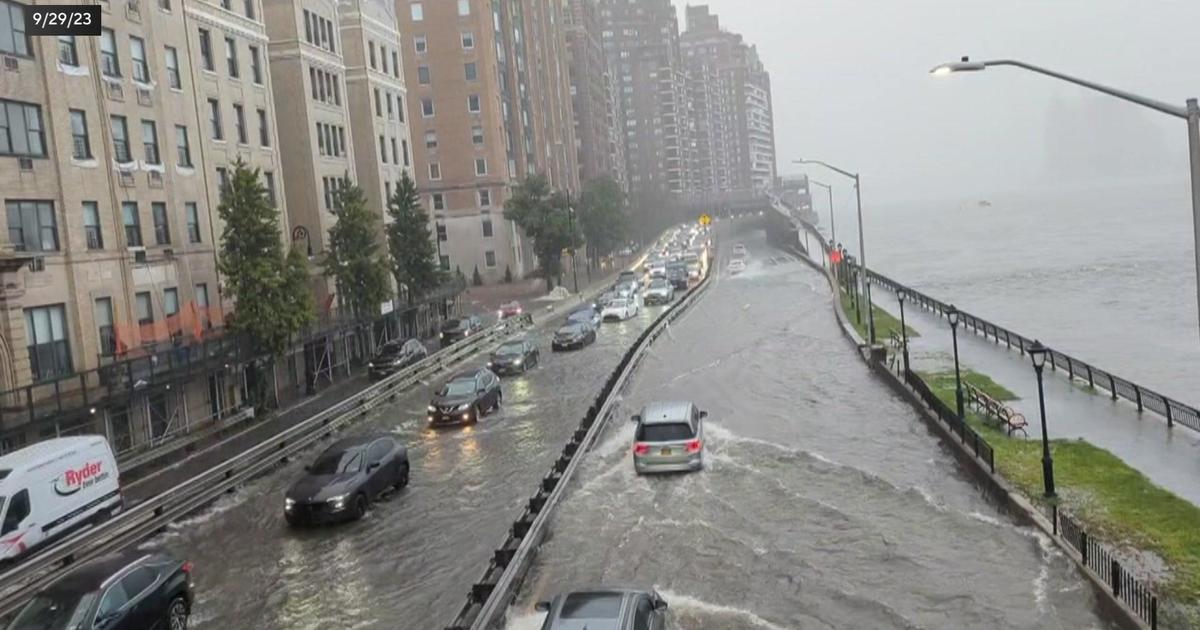New Brooklyn DA Policy May Allow Dismissal Of Many Low-Level Marijuana Cases
NEW YORK (CBSNewYork/AP) -- Under a new policy announced Tuesday, most of the thousands of people arrested on first-time, low-level marijuana charges will likely no longer be forced to go to court for cases that are often eventually dismissed anyway.
The policy was announced Tuesday by Brooklyn District Attorney Kenneth Thompson. Under the policy prosecutors will now use their discretion to dismiss upfront many class B misdemeanor
pot possession claims on a case-by-case basis.
The policy parts from a previous practice that Thompson said weighed on the criminal justice system in both dollar and human costs.
"Last year, there were 8,500 people who were arrested and brought into the criminal justice system here in Brooklyn just for having small amounts of marijuana," he said.
Thompson said the arrests are taking resources away from dealing with more serious crimes.
"We need to redirect our resources to deal with those who are carrying guns, to deal with domestic violence, to protect our children. And if we continue to devote a significant amount of resources to these low-level, nonviolent marijuana cases, it will prevent us from dealing with the more serious crimes," he said.
The new policy would not apply to 16- and 17-year-olds, people with serious criminal histories and those caught smoking in public or near children, Thompson said.
"We don't want people to think that this policy is an invitation for people to come to Brooklyn to use marijuana," Thompson said. "We're still going to prosecute certain marijuana cases."
The policy shift represents a follow through on a campaign pledge the new DA made last year, and it opens a new chapter in a yearslong debate over the tens of thousands of low-level marijuana possession arrests citywide each year.
While the city's four other district attorneys often agree to dismiss such pot cases, and some have backed proposals to change state law to more fully decriminalize small-time marijuana possession, they haven't explicitly laid out a policy of not prosecuting the arrests; some, indeed, have said their approach is to prosecute the laws as written.
NYPD Commissioner William Bratton said in a statement Tuesday he discussed the policy change with Thompson but said officers had to enforce state laws uniformly, and that, as a result, Brooklyn's policy change ``will not result in any changes in the policies and procedures of the NYPD.''
New York state partly decriminalized pot possession in 1977 but drew a dividing line: Having up to about 7/8 of an ounce is a non-criminal violation akin to a traffic ticket if it's in a purse or pocket but a misdemeanor if it's ``open to public view.''
Such arrests averaged about 2,100 a year in New York City from 1978 through 1995. Then they started soaring, peaking at 50,700 in 2011 before dropping amid an outcry and policy changes.
Critics feel the arrests take up more police time than they're worth in public safety, and they say the arrests are racially disproportionate and reflect questionable police tactics.
A huge majority of those arrested -- 86 percent last year -- are black and Hispanic, though federal statistics show similar percentages of white, black and Hispanic adults report having used marijuana within the past year or month.
Critics maintain that police sometimes illegally search people or get them to turn out their pockets to generate a ``public view'' marijuana arrest, often during a stop-and-frisk encounter; police have said there's no indication that happens.
Check Out These Other Stories From CBSNewYork.com:
(TM and © Copyright 2014 CBS Radio Inc. and its relevant subsidiaries. CBS RADIO and EYE Logo TM and Copyright 2014 CBS Broadcasting Inc. Used under license. All Rights Reserved. This material may not be published, broadcast, rewritten, or redistributed. The Associated Press contributed to this report.)



